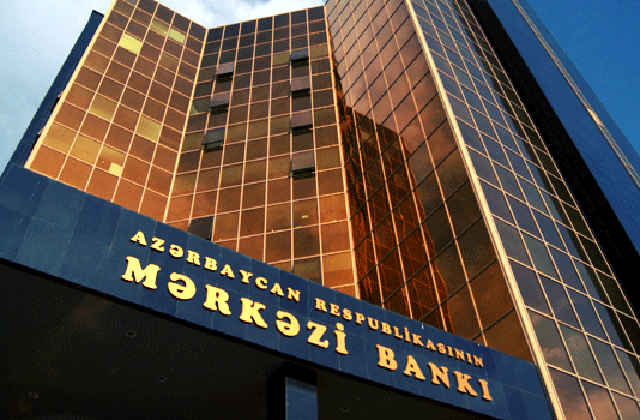Banking crisis in Azerbaijan

While summing up economic year in January and introducing anticipations for the upcoming year Azerbaijani president stated that “The biggest blow to the national economy was recorded from the side of the banking system.” Crisis of Azerbaijan’s banking system hasn’t been overcome since 2015. Two out of 45 banks in the country were closed in 2015, and last year—11 more banks.
To control the situation decision was made to pass on control of trade and Islamic banks from the Central Bank to a different organization developed for a different purpose. The new organization was entitled to control country’s financial market, as well as banking and credit organizations. Head of the organization announced that there are 280 thousand suits in Azerbaijan’s judicial system, submitted by physical and legal persons attempting to get back their currency deposits and funds in the banks.
However, it turns out that even under court decisions applicants fail to receive their money. Half of deposits in Azerbaijan’s banking system are in foreign currency and due to deficit of foreign currency in internal market even operating banks introduced serious restrictions for customers with foreign currency accounts. Means of bank deposit insurance foundation aren’t enough to compensate the deposits. From liquidated banks, e.g. Bank Standart has about 262 thousand physical and 47 thousand legal person-clients.
Financial means provided by the Central Bank to insurance foundation aren’t enough to return money to the clients. In 2015, i.e. when the crisis began nonperforming loans comprised 12% of total. (In Azerbaijan loans, which are overdue for more than 90 days are considered nonperforming). Despite bold statements by the authorities on solving the issue, in 2016 number of nonperforming loans was almost doubled—21%.
Last week prominent Fitch Ratings published its assessment on Azerbaijan’s banking system. This organization anticipates that in 2017 Azerbaijan’s economy will record slow growth and that 2017 is going to be harmful for the banking system. Even official statistics issues data about this.
The first 2 months of ongoing year compared with the same period of the previous year, official statistics records that prices for food have raised by 15.6% in Azerbaijan, and rise in price for non-food products comprises 12.5%.
8.4% growth is recorded in the field of services. To overcome the established situation the special body controlling activity of financial companies stated on a rather original and strange decision. This body has submitted a legislative initiative, by which it’ll attempt to put the crisis of banking system on bank shareholders and managers. That body will discuss the activity of shareholders and managers of banks, which entered a stage of liquidation or bankruptcy.
If the respective committee decides that financial crisis generated as a result of “inactivity or inaccurate work” of shareholders or managers, they’ll have to be brought to criminal responsibility and respond by their property. In this country resembling eastern tyranny, where pursuant a well-known joke “the authorities are spread sexually”, it’s clear what adoption of this law may lead to. Obviously, a new stage of property distribution is launched in Azerbaijan. The legislative initiative will surely become a law.
As a result, the authorities firstly under rehabilitation program will take management of banks in their hands. Then, if they succeed to “rehabilitate”, they’ll be put up to auction. In other words, they’ll be provided to a new owner. Based on expert assessments one of the world’s largest banks—International Bank of Azerbaijan—is involved in the process. Currently official information is full of statements that the authorities do their best to save the bank. As bankruptcy of such a large bank, based on official media outlets, will undertake uncontrollable processes in financial and economic life.
In other words, the newly established control chamber of financial organizations has already unleashed a new process of property redistribution. And reasons may be introduced by experts following domestic policy developments of neighboring countries. Clan fight within government circles appeared at a new stage.
By Ara Galoyan

























